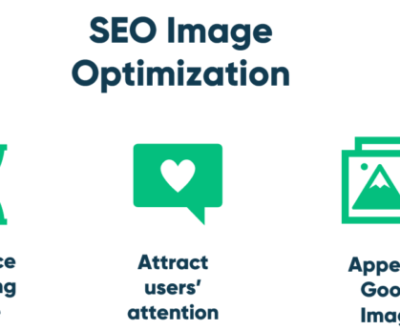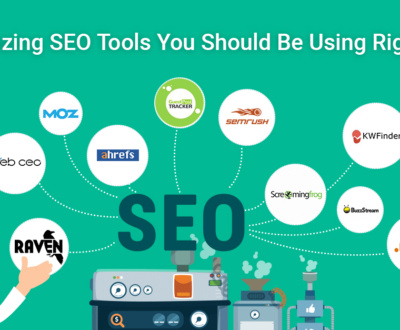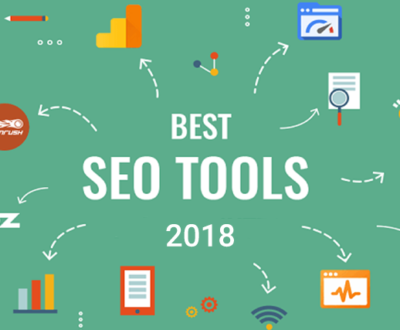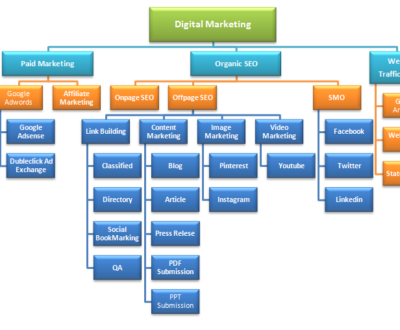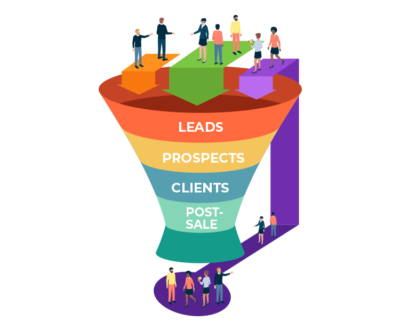What is Off Page SEO & How to take Advantage of that?
Off-page SEO involves all the actions you take to influence search engine rankings that are outside of your website. This can include building backlinks, being active on social media, and blogging guests.
Search engines evaluate many factors when determining a page’s ranking. While some of the factors are based on website content and performance, Google also obtains information about your website from sources outside your domain. This is why off-page SEO is so valuable. Link building, for example, an effective off-page SEO strategy, is one of the most important ranking factors. This is because Google relies on PageRank, an algorithm that analyzes the backlinks of a page for quantity and quality.
An off-page SEO strategy supports your website’s efforts (for example, on-page SEO) and works to add credibility, relevance, trustworthiness, and authority to your domain.
On-page SEO vs off-page SEO
Put simply, on-page SEO encompasses every action you take on your website to influence search engine rankings. Off-page, on the other hand, happens off-page of your website. What specific actions?

Here is a quick visual guide:
SEO Off Page vs. SEO On Page
This list is not exhaustive, but it should make the difference between these two SEO strategies clear. The key point is that both are equally important in achieving and maintaining a high ranking in search results.
- Off-page SEO checklist
- building links
- Social networks
- Local SEO
- Content Marketing
- Building links
Links from other sites on the web server such as votes to trust your domain. The more votes you get, the more likely you are to rank in search engines. Conversely, the fewer votes you have, the harder it will be to convince Google that you are a trustworthy and authoritative site.
You need more pages to vouch for you, that’s what backlinks do. Creating an external link is an off-page strategy that should be number one on your list.
There are several types of links you can get:
Natural or earned links, where your brand is organically mentioned by publishers or consumers. Links created, which require some effort on your part, such as contacting publishers for link attribution or mention.
It is important to use white hat strategies to get backlinks, as methods like flooding forums and comment sections with links to your webpage can get you penalized by Google. For creative ways to get backlinks, check out this backlink strategy guide.
You can also skip to this section where we cover what to look for in a backlink opportunity.
2. Social networks
You’ve probably thought of social media as a brand recognition tool, rather than an SEO game.
But social media is a great way to gain domain authority and boost your search engine rankings.
When you share content on social media and drive traffic to your website, you are showing Google that you are getting traffic from a variety of sources and that you should have engaging, high-quality content.
That’s why it’s important to constantly engage your community on social media and use it for content distribution. More engagement is likely to translate into more shares, backlinks, and clicks, which helps build domain authority.
3. Local SEO
Local SEO is a strategy that involves optimizing a site for local search results. This is typically used for physical businesses or those serving consumers in specific geographic areas, such as beauty salons, air conditioning companies, or supermarkets.
For this to work, you need to send signals to search engines that serve consumers in local areas. How do you do this? Here are some key ways:
Add your business to local and national business directories, aka Google My Business. Request your ad on review sites, such as Trip Advisor and Yelp, and respond to reviews. Encourage your customers to leave positive reviews online. Have consistent contact information across all digital platforms For a complete guide to local SEO, check out this article.
4. Content Marketing
Content marketing helps you reach your target audience and engage them with information that meets their needs and pain points.
In addition to your on-page content marketing efforts like blog posts, you can also take advantage of methods like guest blogs, downloadable offers, surveys, and reports.
These practices are great ways to drive traffic to your website, generate new leads, and improve search engine rankings.
Take the guest blog as an example, which offers multiple benefits. The first is the ability to reach a new audience that falls within your target market. The second is the backlink value you can earn from posting to another high authority domain. Finally, guest blogging can increase website traffic, another important ranking factor.
Off-page SEO factors for link building
Over the years, Google and other search engines have gotten tougher in their rewarding and penalizing actions. Once everyone knew that link building was a key ranking factor, people used all kinds of strategies to get backlinks. From posting your links on forums to paying for links.
Then search engines caught on and started penalizing the use of unethical or unnatural link placements. Today, here’s what you’ll want to consider when developing your link building strategy:
The number of referring domains: The more domains you have pointing to your website, the more trust ratings you have, according to Google. Linking Authority – It is not enough to have many referring domains, you want domains with high authority to refer to them.
Relevance: The link must be relevant to your site. Let’s say you are a pet toy company. A National Dog Association link surpasses that of a lifestyle blogger.
Anchor text: The specific text that a hyperlink is attached to and pointing to your website must be descriptive and relevant, without appearing spam. What to look for in off-page SEO tools
So you want to work on your off-page SEO strategy and you need a tool. Before choosing a tool, it is important to know what characteristics to look for.
The first thing you will want to look for is an SEO tool that includes a backlink checker. It should offer details about your referring domains, anchor text, linking authority, and more.
Developing a strong off-page SEO strategy is just as important as your website efforts. They both work side-by-side to give search engines a complete picture of your brand to determine your ranking. So don’t overlook it, as it can be the key to your success.
Tags:- off page seo, off page seo tutorial, on page seo, what is off page seo, seo off page, off page seo step by step, on page seo tutorial, off page seo checklist, on page optimization, off page seo practical, off page optimization, seo on page off page, on page and off page seo, on page seo vs off page seo, on page seo and off page seo, what is off page and on page seo, off page seo kya hai, off page seo kaise kare
- off page optimization, off page seo, off page seo checklist, off page seo kaise kare, off page seo kya hai, off page seo practical, off page seo step by step, off page seo tutorial, on page and off page seo, on page optimization, on page seo, on page seo and off page seo, on page seo tutorial, on page seo vs off page seo, seo off page, seo on page off page, what is off page and on page seo, what is off page seo
About us and this blog
We are a digital marketing company with a focus on helping our customers achieve great results across several key areas.
Request a free quote
We offer professional SEO services that help websites increase their organic search score drastically in order to compete for the highest rankings even when it comes to highly competitive keywords.
Subscribe to our newsletter!
More from our blog
See all postsRecent Posts
- What are Web Stories and their importance? July 30, 2022
- What are Paid Ads and Advantages of Paid Ads? July 29, 2022
- How Web 2.0 is Different from the Web 3.0? July 28, 2022


